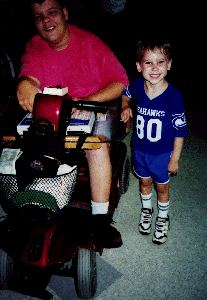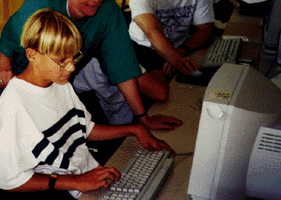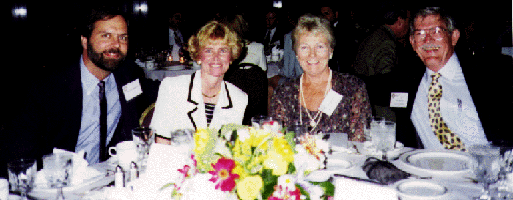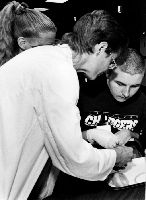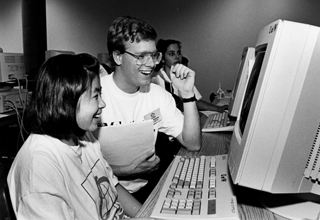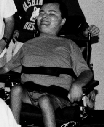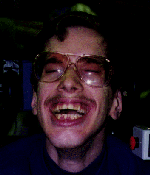Director's Digressions
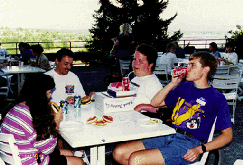
We approach the eve of Summer Study '95, August 6-18, for DO-IT Scholars at the University of Washington. We start this summer program with two recent successes behind us, our Camp Courage Internet session and our first place award from the First Annual National Information Infrastructure Awards in the category of education. This year's Summer Study is exceptional thanks to the generosity of the instructors and volunteers who will be sharing their time and knowledge with the Scholars. All of us at DO-IT are excited about the variety of stimulating presentations we're able to offer this year.
Our schedule is packed with spectacular workshops and evening activities! The Scholars will be participating in labs on creativity, adaptive technology, the Internet, plate tectonics, digital imaging and special effects, bridge building, atmospheric sciences, life in space, surgery, telemedicine, chemistry, genetics research ethics, World Wide Web page creation, and architectural design. They will experiment with leadership principles, self-advocacy skills, college survival techniques, and portfolio development. A featured speaker is Ed Lazowska - Chair of the UW Computer Science and Engineering Department; he will talk about the future of the Internet.
Since all work and no play makes for dull DO-IT Scholars, we have also drummed up some outrageous "playtime" activities! Scholars will have opportunities to use their detective skills in a treasure hunt, exercise their muscles on a bicycle ride with Ski-for-All, learn about future technologies in the UW Virtual Reality Lab, goof off with the Mentors, stretch their creative wings by painting in the traditional Sumi-style, wander in wonder at the Pacific Science Center, and talk with the animals at the Woodland Park Zoo.
Wow! You'll find a copy of our schedule on pages 6 and 7 of this newsletter. If you're going to be in the area, feel free to drop in, introduce yourself to us, and join in the activities! The more the merrier!
